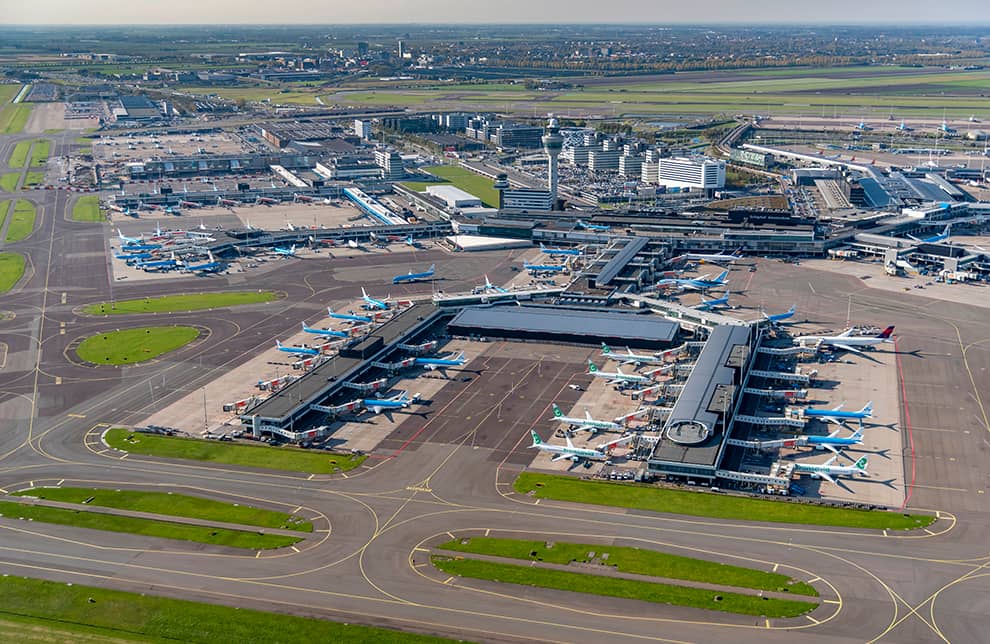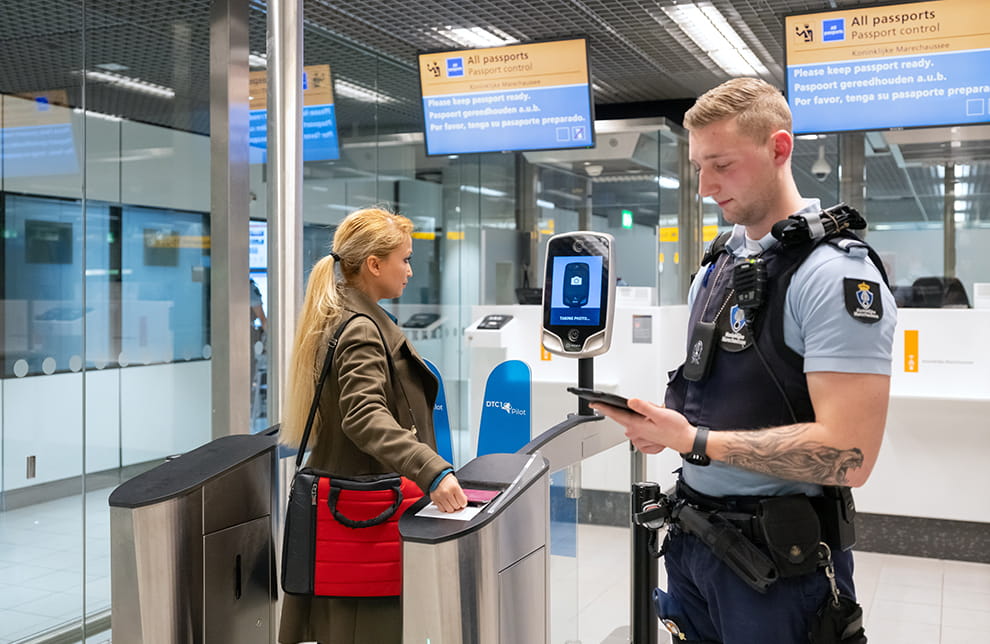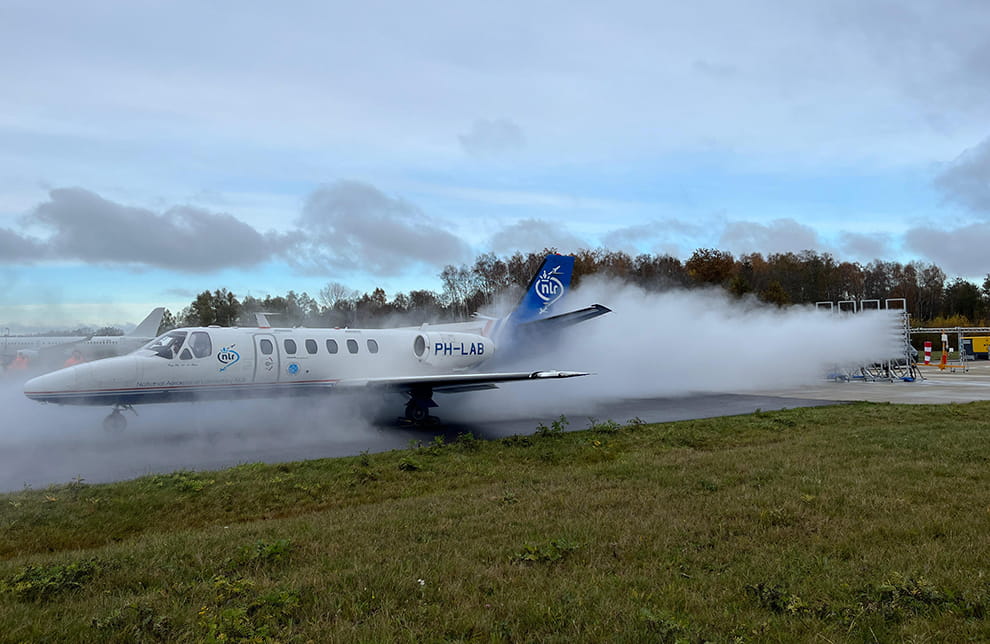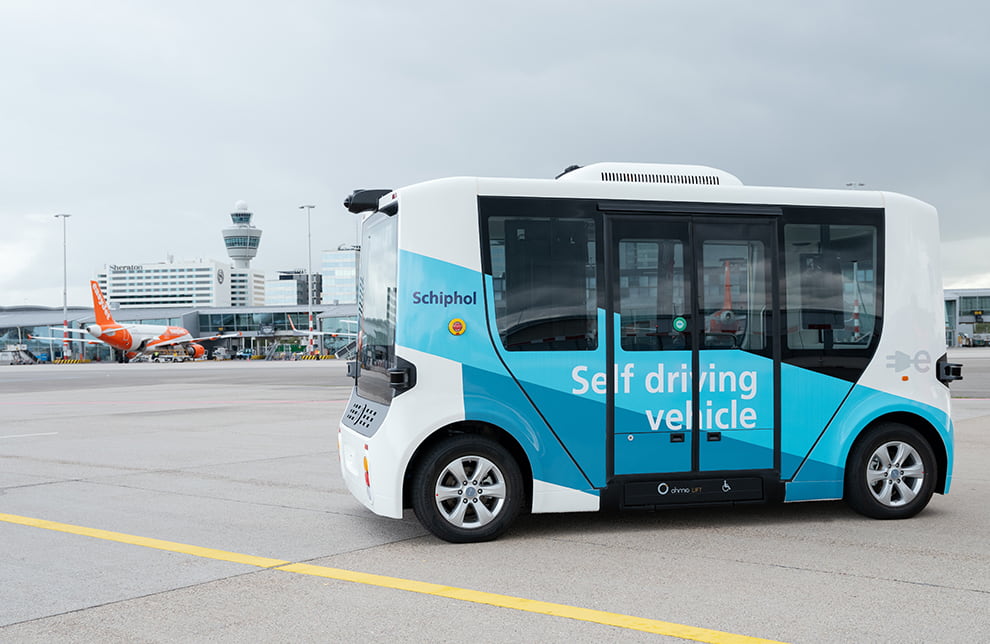New research lab for ultrafine particles on apron
As part of our commitment to ensuring that employees at Schiphol can work in a healthy environment, we are working on various initiatives to improve local air quality. At Schiphol, a research lab has been opened at two aircraft stands on Pier D. The lab is full of equipment that can measure ultrafine particles and will be used to test measures and experiment with innovative ideas. You can find out more about it in this blog.

24-hour monitoring
The research lab at gates D23 and D44 has been fitted with ten sensors that are monitoring the levels of ultrafine particles 24 hours per day. Through constant monitoring, we can learn more about the influence of the weather and other factors. At the same time, we can gain an understanding of the level of ultrafine particles present at an aircraft stand, which can even vary within an aircraft stand itself. We can then apply what we learn to improve the measures we are taking to minimise exposure to ultrafine particles.
Testing measures
Ultrafine particles are released into the air when an aircraft starts its engines or through the use of diesel-powered vehicles. Schiphol is working to reduce these emissions and aims to increase the distance between the source of emissions and employees working on the apron. This includes investing a lot in electric equipment to replace diesel. We are also making changes to the departure process for aircraft: from push-back to push-pull, for example. As the name suggests, this involves pushing the aircraft back before pulling it slightly forward. The engines start up further away and the aircraft no longer needs to apply thrust in order to turn. At D23 and D44, we have been applying push-pull since this summer and can measure its effect.
Conducting experiments
The research lab can also be used to try out new things. Since scientific knowledge about ultrafine particles is still fairly limited, we intend to test promising innovations directly on the apron. For example, we plan to experiment with the use of ventilators in order to blow clean air onto the apron. We are exploring whether this method can be effective in removing ultrafine particles from the workplace.
By combining protective measures with research into exposure and health and wider experimentation, we are working to ensure a healthy workplace and minimising employee exposure to ultrafine particles on the apron.
Read the previous blogs
-
Tap and go with your Digital Travel Credential!
Published on:Can you board and cross the border faster with a digital travel document? At the request of the EU, we are testing a DTC together with the government and KLM.

-
Test capturing ultrafine particles with droplets
Published on:We are working diligently to reduce the amount of ultrafine particles. A possibility is the use of water droplets to remove ultrafine particles from the air.

-
Autonomous Bus Initiative
Published on:Our ambition: operating the world's most sustainable and top-tier airports by 2050. With this in mind we're putting autonomous buses to the test on airside.
